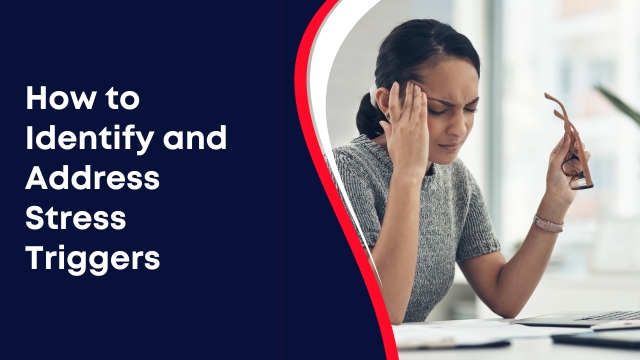Stress is common in life, but understanding its causes is essential. Identifying and addressing your stress triggers can help you manage stress more effectively. This article provides simple steps to help you recognize and tackle those triggers.
Understand What Stress Triggers Are
Stress triggers are events or situations that cause stress. They can be external, like work deadlines or family issues, or internal, such as negative thoughts or feelings. Recognizing these triggers is the first step in managing stress. Be open to exploring different areas of your life. Stress can come from unexpected places. Look at your daily routines, interactions, and environments.
Keep a Stress Journal
One effective way to identify stress triggers is by keeping a stress journal. Write down your feelings and experiences each day. Note when you feel stressed and what caused it. After a few weeks, review your entries. Look for patterns in your stress levels. Are there specific situations or people that consistently cause stress? This information can help you understand your triggers better.
Analyze Your Lifestyle
Your lifestyle choices can contribute to stress. Take a close look at your daily habits. Consider your diet, exercise routine, and sleep patterns. Poor lifestyle choices can increase stress levels. For example, if you eat a lot of junk food, try incorporating more fruits and vegetables into your meals. Small changes can lead to significant improvements in your overall well-being.
Recognize Emotional Triggers
Emotional triggers can also cause stress. Certain situations may remind you of past experiences or evoke strong feelings. Identifying these emotional triggers is crucial for managing stress. Ask yourself why certain situations affect you deeply. Understanding your emotional responses can help you manage them better in the future.
Identify Work-Related Stressors
Many people experience stress at work. Identify specific stressors in your job. Once you identify work-related stressors, consider discussing them with your supervisor. Open communication can lead to better understanding and support. Your supervisor may help adjust your workload or provide resources to ease stress.
Set Realistic Goals
Sometimes, stress arises from unrealistic expectations. Evaluate your goals and commitments. Setting overly ambitious goals can lead to frustration and stress. To manage stress, break larger goals into smaller, more manageable steps. This approach makes your tasks less overwhelming and allows for a sense of accomplishment.
Practice Mindfulness
Mindfulness is a great tool for identifying stress triggers. It involves being present in the moment and observing your thoughts and feelings without judgment. Regular mindfulness practice can increase your awareness of stressors. Incorporate mindfulness techniques into your routine. These practices can include meditation, deep breathing exercises, or yoga. They help you stay grounded and aware of your triggers.
Establish Boundaries
Setting boundaries is crucial for managing stress. Learn to say no when necessary. Overcommitting can lead to burnout and increased stress levels. Once you establish your boundaries, communicate them to others. Let friends, family, and coworkers know what you can and cannot take on. Respecting your boundaries helps maintain healthy relationships and reduces stress.
Seek Professional Help
If you struggle to identify or manage your stress triggers, consider seeking professional help. A therapist or counsellor can provide guidance and support. They can help you explore your triggers and develop coping strategies. Connecting with others who share similar experiences can provide valuable insights and encouragement.
Develop Coping Strategies
Once you identify your stress triggers, develop coping strategies. These are techniques to help you manage stress when it arises. This could include exercise, hobbies, or relaxation techniques. Create a stress management plan that outlines your triggers and coping strategies. Keep this plan handy for reference. Knowing how to respond to stress can make it feel more manageable.
Practice Self-Care
Incorporate self-care into your routine to help manage stress. Self-care involves activities that promote well-being and relaxation. This can include hobbies, exercise, or spending time with loved ones. Make self-care a priority by scheduling it into your week. Treat this time as non-negotiable. Regular self-care can significantly reduce stress and improve your overall quality of life.
Identifying and addressing stress triggers is an ongoing process. You can gain valuable insights by keeping a stress journal, analyzing your lifestyle, and recognizing emotional and work-related triggers. Incorporating mindfulness and developing coping strategies will empower you to manage stress effectively. With these tools, you can create a more balanced and fulfilling life, improving overall well-being.




